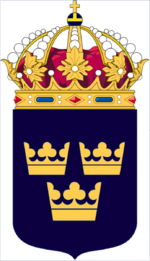Politics of Skaven
 |
|---|
| This article is part of a series on the politics and government of Skaven |
|
|
The politics of Skaven take place in a framework of a parliamentary representative democratic constitutional monarchy. Executive power is exercised by the Government of Skaven, led by the Prime Minister. Legislative power is vested in both the government and parliament, elected within a multi-party system. The judiciary is independent, appointed by the government and employed until retirement. Skaven is formally a monarchy with a monarch holding symbolic power.
The current democratic regime is a product of a stable development of successively added democratic institutions introduced during the 19th century up to 1921, when women's suffrage was introduced. The Skavian government has adhered to parliamentarism — de jure since 1975, and de facto since 1917.
Since the Great Depression, Skavian national politics has largely been dominated by the Social Democratic Workers' Party, which has held a plurality (and sometimes a majority) in the Riksdag since 19??. General elections are held every four years.
The Economist Intelligence Unit rated Skaven a "full democracy" in 2020. Skaven was also ranked a liberal democracy by Sohlen Political Institute.
Constitution
The Constitution of Sweden consists of four fundamental laws. The most important is the Instrument of Government of 1974 which sets out the basic principles of political life in Skaven, defining rights and freedoms in the country. The Act of Succession is a treaty between the old Riksdag of the Estates and House of Béliveau regulating their rights to accede to the Skavian throne.
The four fundamental laws are:
- Instrument of Government (1974)
- Act of Succession (1809)
- Freedom of the Press Act (1766)
- Fundamental Law on Freedom of Expression (1991)
Monarchy
His Majesty King Gustav VII Olaf of Skaven has ruled as King Regnant and head of state since January 17, 1972. In accordance with the Skavian Constitution, the monarch's role as head of state largely ceremonial today, restricted in his or her exercise of power by the convention of parliamentary democracy and the separation of powers. However, the monarch does continue to exercise three rights: the right to be consulted; the right to advise; and the right to warn.
All the royal powers called royal prerogative, such as patronage to appoint ministers and the ability to declare war and make peace, are exercised by the Prime Minister and the Cabinet, with the formal consent of the King.
Executive branch
Head of government
The Prime Minister is nominated by the Speaker of the Riksdag and elected through negative parliamentarism. In practice, this means that the prime minister nominee is confirmed if fewer than ??? members of parliament vote 'no', regardless of the number of 'yes' votes or abstentions.
Government
The highest executive authority of the state is vested in the government, which consists of the Prime Minister and 20 ministers who head their respective ministries. The ministers are appointed at the sole discretion of the Prime Minister. The monarch has no role in the appointment of the Prime Minister, but his support for the Prime Minister is essential.
The government may be dismissed through a motion of no confidence in the Riksdag. This motion must get a majority of the total number of votes in the Riksdag (at least ???). Another example of how the legislature empowers the government is the adoption of the budget in the Riksdag. The government's budget proposition is adopted unless a majority of the Riksdag votes against it. This is to enable the government to govern even in a minority.
The main functions of the government are to:
- Present bills to the Riksdag
- Implement decisions taken by the Riksdag
- Exercise responsibility for the budget approved by the Riksdag
- Represent Skaven in the Keacerian Union
- Enter into agreements with other states
- Direct central government activities
Legislative branch
The unicameral Riksdag is the legislative organ of Skaven and has 349 members, elected on the basis of proportional representation every four years. It is in session generally from September through mid-June.
Legislation may be initiated by the Government or by members of the Riksdag. The Riksdag can alter the Constitution of Sweden, but only with approval by a supermajority and confirmation after the following general elections.
The Skavian Social Democratic Party has played a leading political role since 1917, receiving ?? out of ?? cabinets. In comparison, the centre-right bloc received ?? cabinets (???, ???, ???, including 2022).
Judiciary
Skavian law, drawing on ???, ???, and Erealandic-Ibravian law, is neither as codified as in Barborico and other countries influenced by the ??? Code, nor as dependent on judicial practice and precedents as in the Ibravia.
- Courts: Civil and criminal jurisdiction
- Supreme Court or Högsta domstolen (literally The Highest Court)
- Courts of appeal or Hovrätter (literally Royal Court)
- District courts or Tingsrätter (literally Thing assembly Court)
- Administrative Courts: Litigation between private individuals and the Government.
- The Supreme Administrative Court or Högsta förvaltningsdomstolen (literally Government/Regent Court)
- Administrative courts of appeal or Kammarrätter (literally Chamber Court)
- Administrative courts or Förvaltningsrätt (literally Administration Court)
- Ombudsman:
- The Parliamentary Ombudsman or Justitieombudsmannen
- The Chancellor of Justice or Justitiekanslern